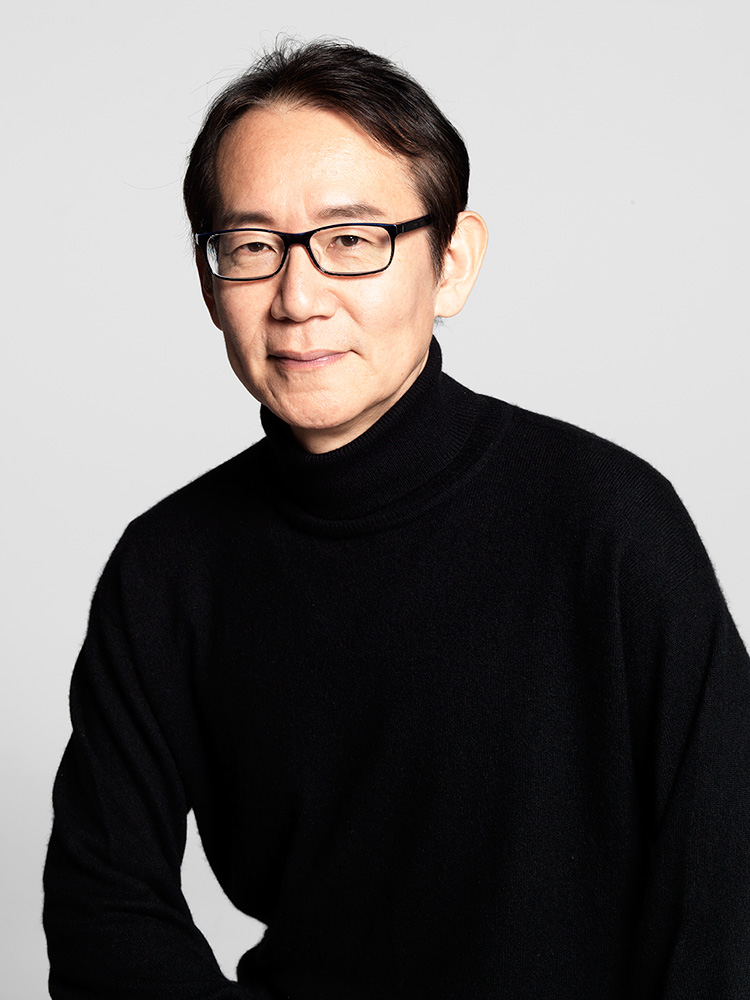
周防正行 Masayuki Suo
After a childhood spent living and breathing movies and baseball, Tokyo-born Suo entered Rikkyo university to study French Literature. It was there that lectures by esteemed movie critic, Shigehiko Hasumi inspired him to become a film director. After an initial foray into independent movies, he got a leg up when he summoned the nerve to ask director Banmei Takahashi, for a job. The legendary director, who happened to be a regular customer at a bar where Suo's friend was working, gave Suo unpaid unemployment at the telephone switchboard. Suo went on to become an Assistant Director on as many as 10 movies a year for Takahashi as well as other directors in his stable such as Koji Wakamatsu and Kazuyuki Izutsu.
When Takahashi founded the Director's Company in 1982, Suo took the opportunity to open Unit 5, his own filmmaking collective with young colleagues of that era, Isumichi Isomura, Yoshiho Fukuoka, Toshiyuki Mizutani and Akira Yoneda. He was soon churning out scripts and in 1984 his debut as a director was made with "Abnormal Family - My Brother's Bride", a well-received homage to his hero, Yasujiro Ozu. This film put him on the map and offers started to flow in. In 1986 he directed the adaptation of a popular novel "Salaryman Classroom" for TV. His momentum increased when he was entrusted with making the behind-the-scenes documentary of the filming of Juzo Itami's "Taxing Woman" in 1987. This lead him to team up with former Daiei employee, Shoji Masui who produced Suo's "Fancy Dance" in 1989. This film debuted the super star actor, Motohiro Motoki and gave Suo the clout to take on "Sumo Do, Sumo Don't" in 1992 which then won Best Film at the Japanese Academy Awards. He had now arrived on the Japanese film scene and he and Masui created their own production company, Altamira Pictures in 1993. 1996's "Shall We Dance?" swept nearly every category of the 20th Japanese Academy Awards and became a social phenomenon (as well as a Hollywood remake in 2003 starring Richard Gere and Jennifer Lopez). 2007's "I Just Didn't Do It" won a raft of awards and helped catalyse a shift in attitudes within Japan's legal system. He changed gears with "Dancing Chaplin" in 2011, a low-budget documentary about ballet which nevertheless enjoyed a long theatrical run and international festival exposure. In 2012, he reunited the two lead actors from "Shall We Dance?" in "A Terminal Trust", a love story in the context of terminal hospital care. 2014 will see Suo return to his signature entertainment style with "Lady Maiko", a light-heared look at a country girl's unlikely bid to enter the cloistered world of Kyoto's apprentice geisha.
Published Works
1991 |
"Sumo Do, Sumo Don't” – Novelization (Ota Publishing) |
1996 |
"Shall We Dance? The World of Masayuki Su o"(Wise Publishing) |
1998 |
"Shall We Dance? Goes to America" (Ota Publishing) |
1999 |
"Shall We Dance? Screenplay Translation"(Ai-Iku Publishing) |
2000 |
"Let's Head to the Ballpark! – Suo's Sports Essays” (Kadokawa Publishing) |
2000 |
"Let's Head to the Ballpark! – Suo's Sports Essays” (Kadokawa Publishing) |
2002 |
"Congratulations, dear fans!" (Dai Takumi Corporation) |
2005 |
"Shall We Dance? Gets Made in America” (Ota Publishing) |
2007 |
"I Just Didn't Do It – Objections about Criminal JusticeI (Gentosha Inc.) |
2011 |
"Masayuki Suo's Introduction to Ballet" (Ota Publishing) |
Awards (partial list)
"Sumo Do, Sumo Don’t" |
The 16th Japan Academy Awards The 66th Kinema Junpo Top Ten Awards The 35th Blue Ribbon Awards The 17th Hochi Newspaper Film Awards The 7th Takasaki Film Festival The 5th Nikkan Sports Film Awards The 47th Mainichi Film Awards |
"Shall We Dance?" |
The 20th Japan Academy Awards The 70th Kinema Junpo Best Ten Awards
The 51st Mainichi Film Awards The 21st Hochi Film Awards The 11th Takasaki Film Festival The 9th Nikkan Sports Film Awards The 3rd Broadcast Film Critics Association The 39th Blue Ribbon Awards |
"I Just Didn’t Do It" |
The 31st Japan Academy Awards The 81st Kinema Junpo Top 10 The 31st Fumiko Yamaji Film Awards The 3rd SARVH Award The 32nd Hochi Film Awards The 20th Nikkan Sports Awards The 50th Blue Ribbon Awards The 62nd Mainichi Film Awards The 17th Tokyo Sports Film Awards The 29th Yokohama Film Festival |
"Terminal Trust" |
The 36th Japan Academy Awards The 36th Fumiko Yamaji Film Awards The 67th Mainichi Film Awards The 25th Nikkan Sports Film Awards The 22nd Japan Film Critics Awards |